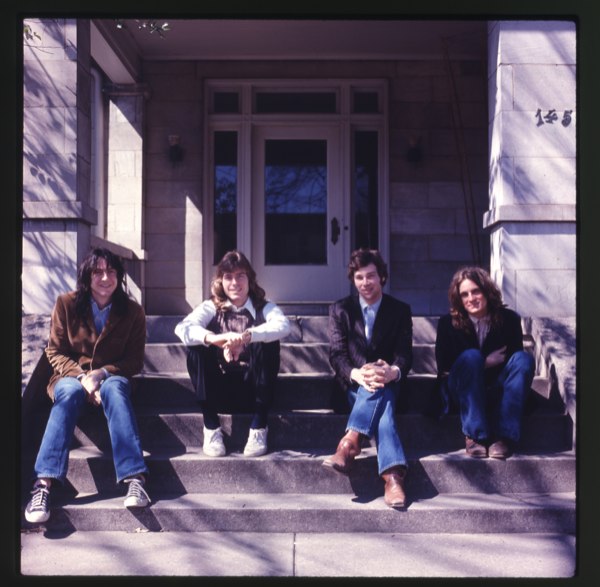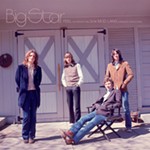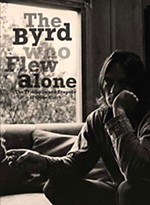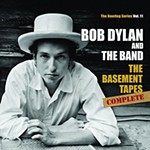Big Stars in Your Eyes
A Q&A with Big Star documentarian Drew DeNicola
By Scott Schinder, 11:16AM, Thu. Jul. 18, 2013
Documentarians Drew DeNicola and Olivia Mori explore Big Star's troubled life, hard times, and posthumous resurrection in Nothing Can Hurt Me, which screens July 21-22 at the Alamo Drafthouse at the Ritz.

The Chronicle spoke with DeNicola in advance of those screenings about the film's Austin roots and his deep-rooted love of the band.
Read more about the film in “When My Big Star's Beside Me,” and then continue the conversation with our Q&A, below.
Austin Chronicle: How did you become a Big Star fan? What appealed to you about the band and their story, and what made you want to make a film about them?
Drew DeNicola: I was in college radio in the early '90s, and at that time Big Star was constantly referenced in the music press. Sister Lovers had just been reissued on Rykodisc and was sitting on the shelf in the studio. Reviews were scrawled on decals across the CD covers by the music director; it said "the sound of a band falling apart" and "Alex Chilton!"
I was going to school at Tulane in New Orleans, and after spending my whole freshman year immersed in Big Star music, I went to see Alex play. He had a reputation around town for being kind of sour. People would say, "If you see him out, don't ask him about Big Star; he'll bite your head off." When I went to see him play, it was all covers; "Volare" was definitely in the set. He was doing it kind of schmaltzy and having a good time onstage, totally ignoring the pleas to hear "September Gurls." Over the course of the show, the pleas turned to jeering and Alex just grinned through it all.
You just couldn't even imagine a sound in your wildest dreams that could do for you what Big Star did. If you were the kind of music fan who continued to revisit mid-to-late '60s pop music, Big Star wasn't so much a continuation of that sound as it was a recombining of the elements, but with a more personal and emotional approach to the songwriting. Also, you could hear an amazing devolution in the three records until you were left with Sister Lovers, which was just spare and sublime, and you learned that this change in the music was paralleled in the emotional lives of the band members.
Coming out of the '90s, Big Star were acknowledged as sort of de facto members of the indie music world. Their records were in every list of the greatest recordings of all time, and their story as artists ignored by the mainstream made them icons in the world of alternative music. But in 2009, when the film's producer Danielle McCarthy and I endeavored to make her fledgling project a reality, it seemed as if Big Star's cachet had slipped some. So beyond just telling a great story, we sort of wanted to re-establish Big Star's place in the rock music canon.

AC: Big Star's story is often presented in terms of failure, frustration and aesthetic injustice, but Nothing Can Hurt Me manages to find triumph in the band's story. Was that a conscious choice?
DD: That was not a conscious choice so much as a conclusion we arrived at. The more we learned about the band and the times they were living in, it seemed as if it there was no other way for their fate to have unfolded. Which is a beautiful thing. It was as if they inadvertently traded commercial success in their time for a lasting musical legacy. This idea was so intriguing to me: What happens when you take success out of the equation?
After a while, it seemed like everything about this band's story was an exception to the rule. They had different members with each record, they played very few shows, a handful of people knew them in their own time, and so I realized it was not so much a band bio as an essay on the music and where it came from.
AC: Alex Chilton and Chris Bell are both surrounded by a great deal of mystique and myth-making. How did the fact both are no longer around influence the way you told their stories in the film?
DD: We engaged with the myth in a lot of ways, rather than create some kind of expose. I often explain that I am not a journalist but a storyteller, so we mainly sought to connect their respective stories to the music and try to understand their very different artistic trajectories.
To everyone who came to work with us, everyone who watched early cuts, I would say repeatedly, "This is not a band bio." The absence of the band is felt strongly, I think. So the influences were more cinematic. It's more like Citizen Kane.
My co-director Olivia Mori and myself went down to Memphis and met everyone who was ever associated with the band, constructing a patchwork of anecdotes – some more reliable than others. In the end, I think you come away with a feeling of who the band was, but moreso a feeling of where the music came from, the times, and the unique atmosphere in 1970's Memphis, Tennessee.

AC: The film also goes a long way toward giving Chris Bell his due. For a long time, his importance as Big Star's founder and stylistic architect tended to be downplayed when the band's story was told, because he'd been gone for so long by the time people started rediscovering the band, and/or because Alex was still out there and people found his persona and backstory more intriguing.
DD: Again, that was something we learned along the way. Alex joined Chris' band. Chris had the concept and the sound and the big dreams. He'd been dreaming about it since the day the Beatles blew his mind on Ed Sullivan. Chilton experienced Beatle-level fame without the chops, so he spent his first post-Box Tops year toiling away in an apartment in New York trying to learn guitar and write songs. He slipped into the band with a few songs he wrote on acoustic guitar, Bell eagerly scooped them up and gave them the Big Star treatment.
Bell has had this reputation as being quiet and fragile, but everyone we spoke to talked about his magnetism, his wry wit – he was the smartest guy in the room. The problem was his complete obsession with music; it was all he had in the world.
AC: How did the fact that Alex, bassist Andy Hummel, and producer Jim Dickinson all passed away during production affect your approach to the film?
DD: These deaths ended up seeming like plot points, but they were just unfortunate things that happened. We didn't want to dramatize that aspect. But it certainly gave us a feeling that it was important to make this film for their families. It also seemed to make it even more clear that Big Star was this thing that happened over just a few years. It was a group of guys who came together in this amazing studio and captured it on record. There's really nothing beyond that. They will not re-form; the story does not continue.
I felt like this was a universal story; it was what kept me interested. There were so many obstacles in making this film – no Alex Chilton or Chris Bell to speak for themselves, beyond audio recordings, not a ton of archival footage of the band. But I felt blessed with a very compelling story. There are elements of poetry in it that you just couldn't write any better: the parallels, the tragedies, the bittersweet tiny victories – the ghost of the Big Star Story. That whole era is still felt in Memphis, and I wanted to translate that to the audience. And I think we were successful.
Big Star: Nothing Can Hurt Me screens Sunday, July 21, 1:05pm, and Monday, July 22, 10:30pm, at the Alamo Drafthouse Ritz (320 E. Sixth). Visit the Drafthouse website for details and tickets.
A note to readers: Bold and uncensored, The Austin Chronicle has been Austin’s independent news source for over 40 years, expressing the community’s political and environmental concerns and supporting its active cultural scene. Now more than ever, we need your support to continue supplying Austin with independent, free press. If real news is important to you, please consider making a donation of $5, $10 or whatever you can afford, to help keep our journalism on stands.
Austin Powell, March 17, 2010
Dec. 12, 2014
Big Star, Nothing Can Hurt Me, documentary, Drew DeNicola, Olivia Mori, Alex Chilton, South by Southwest









